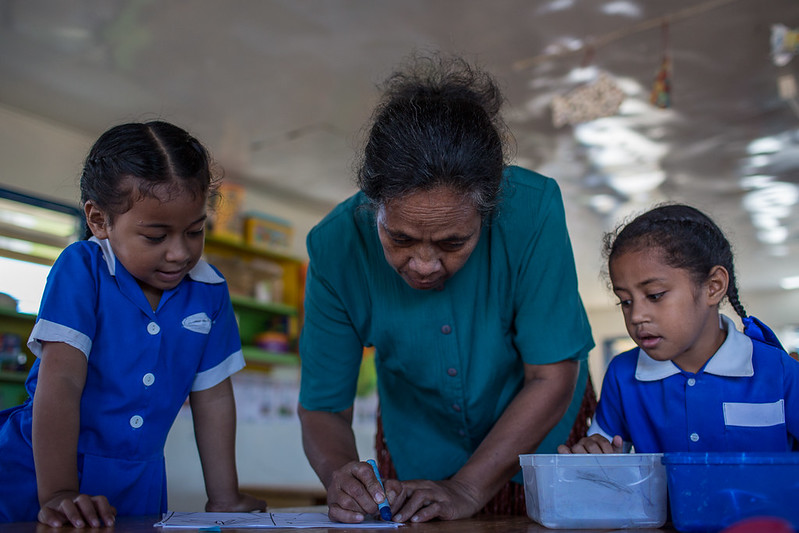
On this day 22 years ago, the United Nations Security Council adopted
resolution 1325 in recognition of the fact that women experience and are affected by conflict in different ways to men. Since then, a further
nine resolutions relating to women, peace and security (WPS) have been adopted to promote gender equality and strengthen women’s participation, protection and rights in conflict situations and peacekeeping operations and to acknowledge the changing global context of peace and security. Together these 10 resolutions are known as the WPS agenda.
The WPS agenda goes beyond recognised situations of armed conflict. Its fundamental purpose is to ‘prevent insecurity and violence by
harnessing the potentials of both women and men, and addressing structural gender inequality and discriminatory gender norms that are barriers to sustainable peace’. Increasingly, natural disasters, poverty, climate change, health epidemics and gender inequality are being viewed as drivers of insecurity and barriers to peacebuilding.
Nowhere can this be seen more clearly than in the Pacific. Consultations by the Asia-Pacific Development, Diplomacy & Defence Dialogue (AP4D) earlier this year explained how Pacific people
experience insecurity at multiple levels:
- globally, as a warming planet presents ecological and civilisational threats
- regionally, as players and relationships change
- nationally, as countries respond to the effects of Covid-19, natural disasters, illegal fishing, transnational crime and other threats, compounded by gender inequality
- locally, where community leaders and security agencies struggle to control violence and subnational conflicts in several countries. In some areas, law and order challenges and the proliferation of firearms mean that risks to individual safety and tribal and political violence are extremely real.
An expanded concept of security is articulated in the Pacific Islands Forum
Boe Declaration.
Against this backdrop, progressing the WPS agenda in the Pacific is a crucial part of ensuring a peaceful and prosperous region. While a commitment to gender equality and increased participation of women in security and peacebuilding efforts is highlighted in key regional documents such as the
2050 Strategy for a Blue Pacific Continent and the
2012 Pacific Leaders Gender Equality Declaration, this is yet to translate into
women’s increased political participation or reduced levels of violence against women. The Pacific has the lowest levels of women’s political representation in the world
with just 6% of seats held by women. Rates of gender-based violence in the region are
among the highest in the world.
Momentum for the WPS agenda is growing, with Pacific women pursuing policy change through
civil society alliances and local women’s organisations. The nexus between climate change and conflict is better recognised, as well as the gendered impacts of both. The
2019 WPS Pacific summit recognised how the changing security environment in the Pacific demands a strengthened role of women in the peace and security sector.
For Australia, stability and peace in the Pacific goes to the heart of the country’s security, prosperity and national interest. Australia and Pacific island countries agree on a human security approach and the importance of women’s participation and leadership in peace, security and decision-making. However, more attention is needed to put this approach into action.
Putting the Boe Declaration into practice means implementing a human security approach that reaches out to subnational and non-state groups, women’s groups and youth groups to help create peaceful and cohesive societies. This
includes supporting feminist approaches and highlighting the perspectives of women in decision-making through programs such as Pacific Women Lead that are led and staffed by Pacific women. A shared feminist foreign policy agenda should be developed for the region that centres on Indigenous people, approaches and worldviews; recognises the gendered drivers of insecurity; and applies locally owned solutions. Other imperatives are social inclusion— in particular, acknowledging the large youth populations in the Pacific and the need to respond to their economic and political imperatives—and a focus on the impact of extractive industry on human security.
Both Australian and Pacific leaders have long stressed their shared desire for peace and security. But what has maintained peace in the region in the past cannot be assumed to be sufficient in the face of the climate crisis and a deteriorating strategic environment. Australia needs to work harder with the Pacific to respond to drivers of instability to support a peaceful and secure region. This means developing a common framework for security that responds to the full set of peace and security challenges in the Pacific. The WPS agenda provides a framework for working towards a peaceful and prosperous region.
 Print This Post
Print This Post